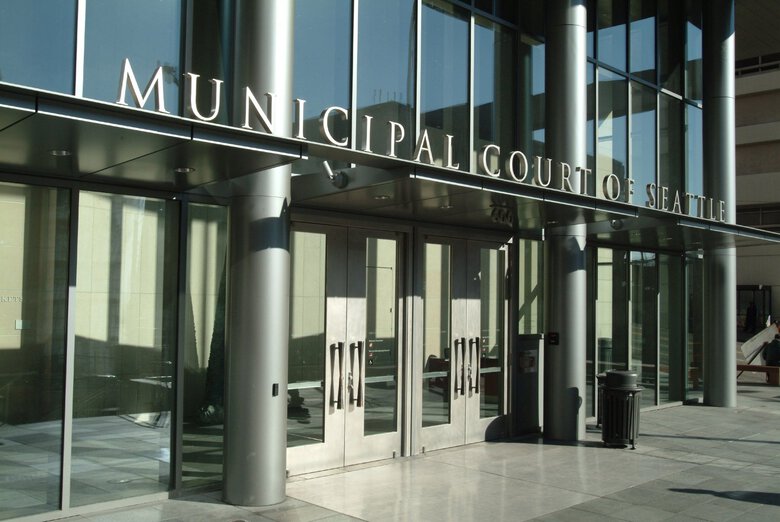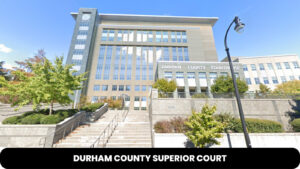What Are Municipal Courts?
Municipal courts, often shrouded in mystery, play a crucial role in our legal system. While you may have heard of them, understanding their inner workings is essential. In this article, we will demystify municipal courts, providing you with insights into their functions, jurisdiction, and the impact they have on our daily lives. Municipal courts are local courts established by municipalities or cities to handle specific types of cases within their jurisdiction. These courts are a fundamental part of the judicial system, addressing a wide range of legal matters that directly affect the community they serve
Understanding the Role and Function of Municipal Courts
In the complex world of the legal system, municipal courts often play a pivotal role, especially in the United States. These courts are established by individual municipalities to handle specific types of cases within their jurisdiction. In this article, we will delve into the intricacies of municipal courts, exploring their functions, jurisdiction, and the unique responsibilities of municipal judges.
Municipal Court Origins and Establishment
- Historical Perspective: To comprehend the significance of municipal courts, it’s essential to understand their origins. Municipal courts, also known as city courts, were created to address cases originating within a municipality’s boundaries.
- Ordinance-Based Jurisdiction: The council of each municipality has the authority to establish a municipal court through ordinance. These courts are an integral part of the unified judicial system, dealing with cases that fall under the municipality’s jurisdiction.
- Alternative Options: Interestingly, municipalities may opt for an alternative route by reaching an agreement with the county governing body. Instead of establishing their own municipal court, they can choose to prosecute cases in a magistrate court.
- Contractual Arrangements: Municipalities can also enter into contracts with the county governing authority to employ a magistrate as their municipal judge. This appointment is typically made by the Chief Justice, who delegates this responsibility to the Chief Summary Court Judge of the county.
Jurisdiction of Municipal Courts
Ordinance Violations: Municipal courts primarily handle cases arising from violations of municipal ordinances. These ordinances encompass a wide range of local laws and regulations, making municipal courts vital in upholding the rule of law at the community level.
Criminal Offenses: In addition to ordinance violations, municipal courts have jurisdiction over criminal offenses with penalties not exceeding $500.00 in fines or 30 days imprisonment, or a combination of both. These offenses must occur within the municipality’s boundaries.
Transferred Cases: S.C. Code Ann. § 22-3-545 allows municipal courts to hear cases transferred from general sessions. These cases involve penalties that do not exceed one year of imprisonment or a $5,000 fine, or both, subject to the solicitor’s petition and the defendant’s agreement.
Limited Civil Jurisdiction: Unlike their broader criminal jurisdiction, municipal courts do not have authority in civil matters. Their focus remains on criminal cases and ordinance violations.
Municipal Judges and Their Responsibilities
Appointment and Term: Municipal judges are appointed by the council of the municipality. Their term of service is determined by the council but cannot exceed four years. This ensures a level of stability and accountability within the local justice system.
Training and Certification: All municipal judges are required to undergo a comprehensive training program or pass certification examinations within one year of assuming office. This training is essential to equip judges with the knowledge and skills necessary for their role.
Recertification: To maintain their competence, municipal judges must pass recertification examinations every eight years after their initial certification. This ensures that they stay updated with the evolving legal landscape.
Types of Cases Heard
The most common types of cases handled in municipal courts include:
- Traffic violations – speeding tickets, stop sign/red light infractions, seatbelt/cell phone tickets, reckless driving, DUIs, driving without insurance
- City ordinance violations – zoning, noise, animal control, health code, business license, curfew, fire code
- Misdemeanors – petty theft, simple assault, trespass, disorderly conduct, public intoxication
- Civil cases – small claims contract disputes, personal injury, landlord/tenant disputes (under monetary limits)
- Parking tickets – meter violations, permit issues, street cleaning, abandoned vehicles
Municipal court cases tend to be high-volume and focus on quality-of-life issues within the city or county’s boundaries. The large majority of cases are traffic-related.
Judges
Municipal court judges are appointed or elected at the city or county level. Most municipal judges are not required to be attorneys. Requirements vary by jurisdiction.
Judges serving on municipal courts tend to handle high case volumes very efficiently. They are assisted by court clerks who handle paperwork and administration.
Court Proceedings
The process for handling a case in municipal court is as follows:
Filing a Case
Cases are initiated by law enforcement issuing citations or tickets to defendants accused of violations. Tickets require an appearance in municipal court on a set date.
The prosecution represents the interests of the city or county where the violation occurred.
Pre-Trial
On the initial court date, defendants may choose to plead guilty/no contest and pay fines or plead not guilty and schedule a trial. Judges inform defendants of their rights.
Defendants may be offered alternatives like deferred adjudication, driving school, community service, or dismissal of charges upon completing terms.
Trial
If pleading not guilty, defendants have a right to a bench trial where the judge hears arguments from both sides and makes a ruling. Witnesses may be called to testify.
Defendants have the right to defend themselves or hire their own attorney. The prosecution must prove guilt beyond a reasonable doubt.
Sentencing
If found guilty, the judge issues fines, fees, probation terms, community service hours, or a jail sentence within statutory limits. Defendants may request options like payment plans, community service substitutes, or work release.
Appeals
Defendants convicted in municipal court can file an appeal with a higher court. The original judge first must certify the appeal. Appellants post bond and receive a new trial before a district court judge.
Paying Fines and Fees
Fines and court fees are paid at the court clerk’s office. Defendants are given a deadline and instructions on their options:
- In-person payment at the clerk’s office
- By mail with check or money order
- Online through the court’s website
- Payment plan approved by the court
- Community service substitution
Failing to pay may result in additional penalties, driver’s license suspension, wage garnishment, or jail time in some cases.
Common Misconceptions
There are some common misconceptions about municipal courts:
- They are not necessarily traffic courts – while many cases are traffic-related, municipal courts handle a variety of minor criminal and civil cases.
- Judges are not required to be attorneys in many jurisdictions. Requirements vary.
- They do not hold jury trials. All cases are bench trials decided by a judge.
- They are not kangaroo courts designed to generate revenue – while some legitimate criticisms exist, municipal courts fill an important role in providing local access to justice.
Benefits of Municipal Courts
While not without valid criticism, municipal courts do offer certain benefits, including:
Efficiency and Convenience
Having local courts to handle minor cases reduces caseloads for higher district and state courts. Citizens can access speedy justice in their own communities without traveling long distances.
Cost Savings
Processing cases locally reduces costs compared to transporting and housing defendants for higher court trials. Defendants also save on legal resources and travel.
Local Focus
Local judges and prosecutors are familiar with communities and can address quality-of-life issues directly through enforcement and sentencing.
Criticisms of Municipal Courts
Some common criticisms include:
Potential Conflicts of Interest
Having judges appointed and prosecutors employed at the local level risks bias and conflicting priorities, compared to higher state courts.
Revenue Generation Concerns
Fines and fees account for large portions of budgets in some jurisdictions, creating incentives to inflate charges rather than focus on justice and public safety. This remains a subject of ongoing debate and reform efforts.
Municipal Courts in South Carolina
Adoption of Municipal Courts: Approximately 200 municipalities in South Carolina have chosen to establish their own municipal courts. This widespread adoption reflects the importance of these courts in local governance.
Exemptions for Legal Professionals: Members of the South Carolina Bar are exempt from the certification examination. However, they are required to attend an orientation program, emphasizing the unique aspects of municipal court proceedings
Municipal Court vs. Other Courts
Key Differences
It’s important to distinguish municipal courts from other types of courts, such as county courts or state courts. Municipal courts focus on local matters and have limited jurisdiction, while county and state courts handle a broader range of cases.
The Impact on Communities
Municipal courts play a significant role in our communities, affecting individuals in various ways.
Financial Implications
The fines and fees collected by municipal courts can significantly impact a city’s revenue. It’s essential to understand how these financial aspects affect local budgets and services.
Community Services
Municipal courts often provide opportunities for individuals to fulfill community service requirements as part of their sentences. This benefits both the community and the individuals involved.
Your Rights and Responsibilities
Understanding your rights and responsibilities when dealing with municipal courts is crucial.
Legal Representation
You have the right to legal representation when facing a municipal court case. Seeking legal advice can help you navigate the legal process effectively.
Appearing in Court
Knowing when and how to appear in court is essential. Failure to appear can result in legal consequences.
.
Conclusion
Municipal courts play a crucial role in upholding law and order within individual municipalities. Their jurisdiction over ordinance violations, minor criminal offenses, and transferred cases ensures that local communities can maintain a sense of security and justice. With trained and certified municipal judges presiding over these cases, the integrity of the justice system remains intact.
Now, let’s address some common questions about municipal courts.
FAQs About Municipal Courts
1. What is the primary function of a municipal court?
The primary function of a municipal court is to handle cases arising from violations of municipal ordinances and minor criminal offenses that occur within a municipality’s boundaries.
2. Can a municipality choose not to establish its own municipal court?
Yes, a municipality can choose not to establish its own municipal court and instead prosecute its cases in a magistrate court, provided there is an agreement with the county governing body.
3. Are municipal judges required to undergo training?
Yes, all municipal judges are required to complete a training program or pass certification examinations within one year of taking office to ensure they are well-equipped for their role.
4. How long is the term of a municipal judge?
The term of a municipal judge is set by the council of the municipality, but it cannot exceed four years.
5. Who is exempt from the certification examination for municipal judges in South Carolina?
Members of the South Carolina Bar are exempt from the certification examination, although they are still required to attend an orientation program to familiarize themselves with municipal court proceedings.





